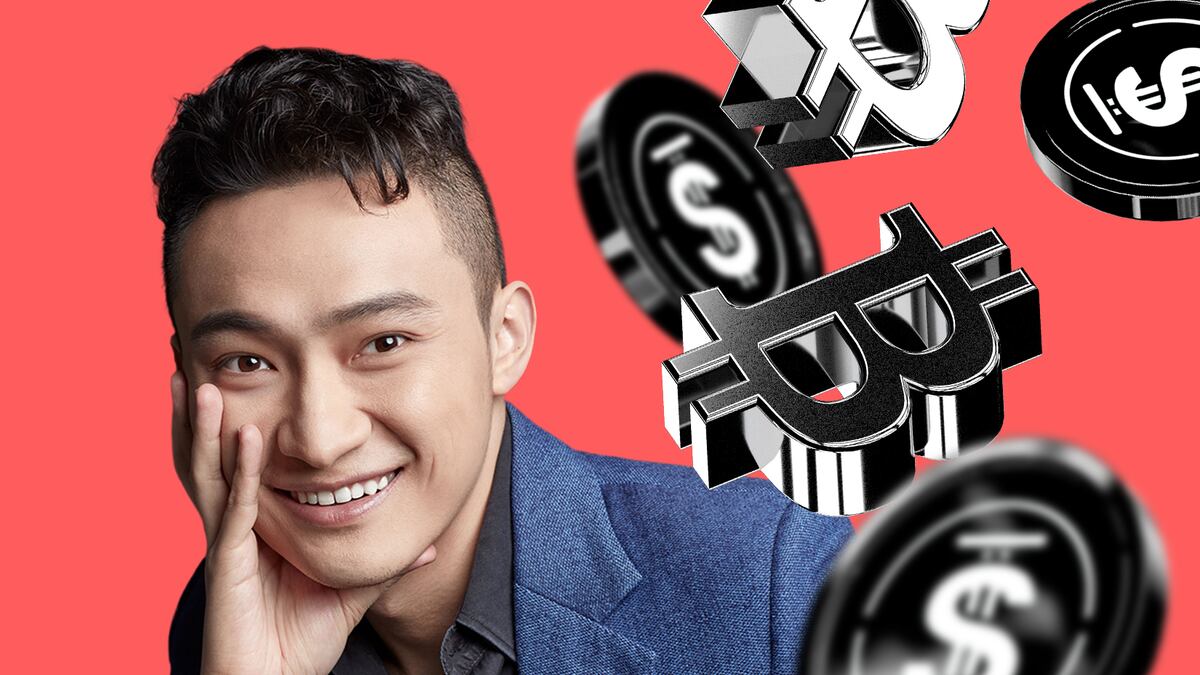- The Tron DAO reserve has removed some 12,000 Bitcoin backing its USDD stablecoin.
- The change happened without a DAO vote.
The Tron DAO Reserve, which manages the USDD stablecoin, removed some $732 million worth of Bitcoin backing the stablecoin Wednesday, fuelling concerns that the entity isn’t as decentralised as it claims to be.
USDD, which has a circulating supply of just over $749 million, is now almost entirely backed by TRX, the Tron blockchain’s volatile native token.
But Tron founder Justin Sun said there’s nothing to worry about.
“Previously, the Tron DAO Reserve would also frequently make adjustments based on the collateral factor,” Sun told DL News, citing his X post on the matter.
Collateral factor refers to the ratio between cryptocurrencies backing the stablecoin and the amount of stablecoin issued.
In a post on X, Sun said USDD had a long-term collateralisation rate exceeding 300%. “The capital utilisation is not very efficient,” he said. Capital utilisation is a metric by which one measures how effectively money is being put to use rather than sitting as collateral.
The USDD website lists the stablecoin’s current collateralisation ratio at around 230%, meaning the value of assets backing USDD is more than twice the value of the stablecoin in circulation.
Launched in 2022, USDD is an algorithmic stablecoin pegged to the US dollar. It touts itself as decentralised, being managed by a decentralised autonomous organisation — or DAO — called the Tron DAO Reserve.
The recent removal of some 12,000 Bitcoin backing USDD raised eyebrows because despite advertising USDD as being managed by a DAO, no vote was approved.
Is it really decentralised?
USDD has a rocky history.
The stablecoin was initially undercollateralised, meaning that the value of its backing assets was less than all USDD in circulation.
When the Terra blockchain’s undercollateralised TerraUSD stablecoin collapsed in 2022, USDD switched over to an overcollateralised model.
At the time, the Tron DAO said it planned to maintain a minimum collateralisation ratio of 130%.
This change, as well as several others, were not put to votes, as is commonplace among DAOs. The USDD website lists only a single DAO vote — a May 2023 proposal to use TRX tokens from the stablecoin’s reserve in Tron governance.
USDD has attracted several prominent critics.
Stablecoin rating agency Bluechip gave USDD its lowest rating, and strongly advises against using it.
Bluechip’s assessment of USDD said the wallet containing the Bitcoin that previously backed it was claimed by Huobi exchange as their own.
The stablecoin rater also criticised USDD’s mechanism.
“USDD has practically useless short term stability mechanisms and a theoretical long term mechanism that is yet to be seen in action,” it said,
Sun said in his Thursday X post that USDD’s mechanism is “not mysterious,” and compared it to that of MakerDAO’s DAI stablecoin.
He also hinted at future upgrades that may address some of the USDD criticism.
“The Tron DAO Reserve plans to spend time upgrading USDD in the future to make it a more competitive decentralised stablecoin in the market,” Sun said.
USDD did not immediately respond to a request for comment.
Tim Craig is DL News’ Edinburgh-based DeFi Correspondent. Reach out with tips at tim@dlnews.com.
